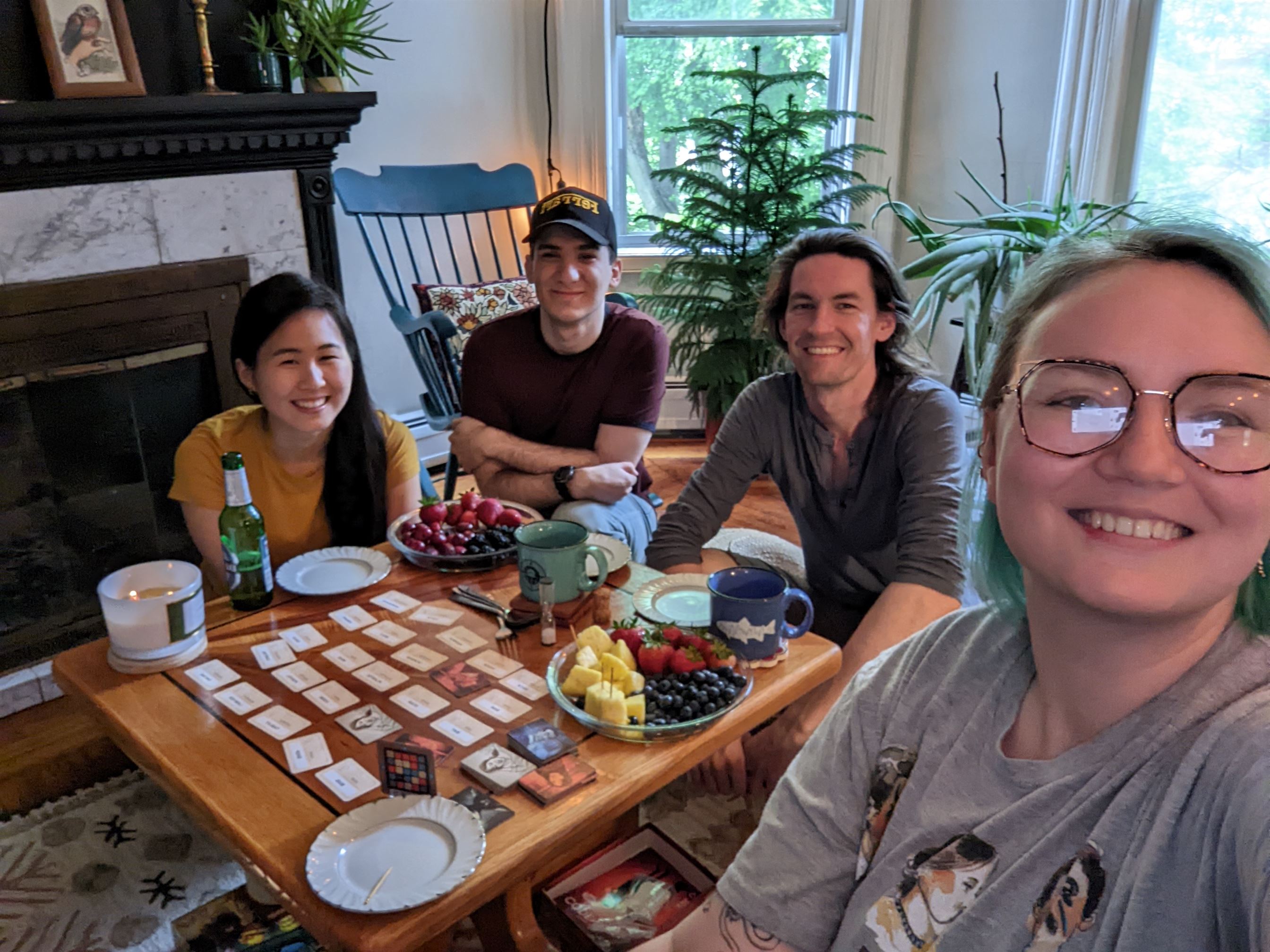For Soon Mi Dickson, a 2021 Montclair State University graduate, education has played a central role in her adult life. Before coming to Montclair State, she worked full-time as a high school math teacher and continued teaching while she was a master’s student at Montclair State’s applied mathematics program.
“Long story short, I have a bachelor’s degree in math education,” Dickson said. “But, after a year of teaching, I missed taking math classes. Even though I read a lot of math books, I really wanted to learn more.”
Before she knew it, she found herself looking forward to what she was learning in class more than what she was teaching.
“At that point, I decided to pivot careers into something that applied mathematical techniques and challenged me intellectually,” Dickson said. “After researching different careers, I decided that data science was the job that sounded the most interesting and I went for it.”
Data scientists gather insight from large collections of data to provide direction to their organization, as well as to improve existing procedures. Dickson now works at Fluent, a digital marketing company, where she deals primarily with customer data such as survey information, demographics, user behavior and profit per user.
According to Dickson, her favorite aspects of her job are the incredibly flexible work environment and endless opportunities to continually learn.
“As long as I get my projects done in a timely manner, no one really bothers me,” Dickson said. “It is also so easy to get better. I can make code more efficient or make a dashboard more visually appealing. I can read an article or listen to a podcast and try something new. I can talk to someone from another team and learn more of the context of a problem. It’s so easy to feel like I’m always on the fastest and most fun part of the learning curve.”
Dickson encourages being proactive in networking for those interested in a new career.
“Directly message people whose jobs you are interested in on LinkedIn and ask them to give you advice on how they got where they are and what they do on the day-to-day,” Dickson said. “Essentially, you’re interviewing a person who has insight and knowledge that might be helpful to you. You’re not asking them for a job, but for information about topics that are meaningful to you.”
According to Dickson, this type of focused conversation enabled her to self-study the fundamental skills of a data scientist. She would read at least five articles a day on Towards Data Science, a popular data science website with tutorials, articles and interview preparation tips in the field.
“This made it much easier to have conversations about data science and helped to point me in the directions of what I should study next,” Dickson said.
Dickson credits her mathematics education at Montclair State with developing the analytical mindset required for her job.
“I personally love the rigor that is mathematics and getting into the nitty gritty,” Dickson said. “Training to be more mathematically minded, trying the same problem repeatedly without giving up, learning to be resourceful of my peers and Google and getting used to not understanding something easily the first time, are all ways that I was prepared by my education at [Montclair State] for my career.”
During her time at Montclair State, Dickson was known to be a team player and a dedicated classmate. Tareck Dalco, an applied mathematics graduate student and former classmate of Dickson, recalls their group work during their machine learning course.
“It was a great pleasure working with [Dickson],” Dalco said. “I remember that as soon as we were given an assignment, she would lead the group’s discussions and get the ball rolling on ideas for projects. Furthermore, her planning and organizational skills always allowed us to stay on top of things. Her coding experience and data science intuition were integral in allowing us to complete our projects.”
Kate Knyazeva, applied mathematics graduate student and former classmate of Dickson, said Dickson was as helpful outside the classroom as she was inside it.
“As a classmate, [Dickson] was always a pleasure to work with; not only is she extremely knowledgeable, but she is always approachable and eager to help out,” Knyazeva said.

Soon Mi Dickson (left) with Applied Math MS classmates. From left to right, Tareck Dalco, Erik Raab, and Kate Knyazeva.
Photo courtesy of Kate Knyazeva
The transition from the classroom to the workplace has not been without its challenges, however. Dickson sometimes finds it difficult to be emotionally invested in the problems she’s helping to solve.
“I’m kind of a minimalist, so getting people to buy things is not something I really care about,” Dickson said. “Instead, I focus on other aspects of the project: what I’m learning, who on my team I’m affecting or how can I apply these skills to another problem. I like to think about my technical skills and how I can level up on them.”
Dickson sees the culture of data science continually becoming more open-sourced, which is contributing to a more equitable future founded on data and statistics.
“The more that knowledge is shared and becomes accessible, the more power that individuals can have,” Dickson said. “There is significantly less gate-keeping against minorities and people coming from low-income backgrounds compared to other fields because you don’t necessarily need a college degree and almost all the skills can be self-taught.”
In the future, Dickson sees herself taking on senior data science roles with a capacity for being a mentor.
“I like being an individual contributor and being technologically savvy, so a manager role isn’t for me,” Dickson said. “But I would love to mentor a junior data scientist to learn the tools of the trade. I think a part of me will always love teaching and helping others, and I hope I can have that kind of relationship with others in the future.”


